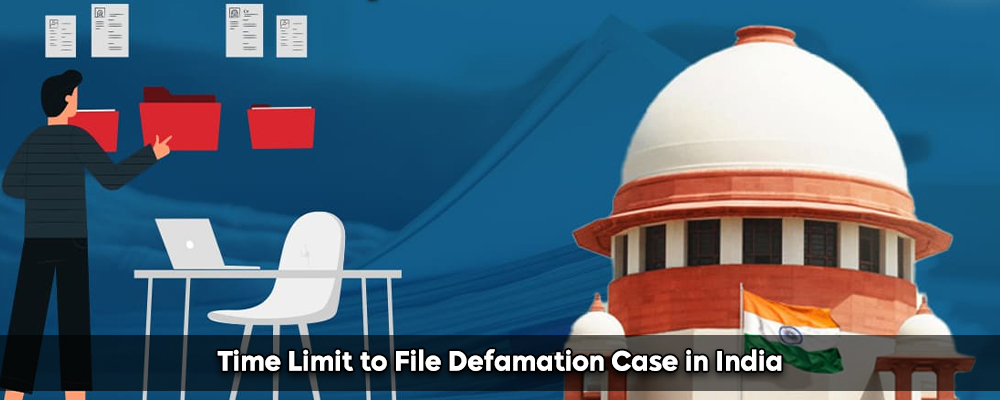Defamation is a legal concept that protects an individual’s reputation from false statements that harm their character. In India, defamation cases fall under both civil and criminal laws. Understanding the time limits for filing a defamation case is crucial for those seeking legal remedies.
Defamation Laws in India
Defamation laws in India are primarily governed by two statutes: the Indian Penal Code (IPC) and the civil law principles outlined in the Law of Torts. Section 499 and Section 500 of the IPC criminalize defamation, making it punishable with imprisonment or a fine or both. Additionally, an aggrieved party can also file a civil suit seeking damages for defamation.
Need A Legal Advice
The internet is not a lawyer and neither are you. Talk to a real lawyer about your legal issue

Time Limit for Filing a Defamation Case under the IPC
- In criminal defamation cases under the IPC, the time limit for filing a complaint is specified under the Code of Criminal Procedure, 1973 (CrPC). According to Section 468 of the CrPC, the general limitation period for filing a criminal complaint, including defamation cases, is three years from the date when the offense was committed.
- However, it’s essential to note that the specific facts and circumstances surrounding each case may influence the starting point of the limitation period. In defamation cases, the three-year period usually begins from the date the defamatory statement is published, making it important for plaintiffs to be vigilant about taking legal action within the prescribed time frame.
Time Limit for Filing a Defamation Case as a Civil Suit
- In addition to criminal proceedings, individuals can pursue defamation claims through civil suits seeking compensation for damages. The law governing civil defamation cases in India does not prescribe a specific limitation period. Instead, civil defamation cases are subject to the general limitation period outlined in the Limitation Act of 1963.
- Under the Limitation Act, the general time limit for filing a civil suit is three years from the date the cause of action accrues. The cause of action in defamation cases arises when the defamatory statement is published and reaches the aggrieved party. As such, the three-year period begins from the date of publication.
Factors Influencing the Limitation Period:
Several factors may impact the limitation period for filing a defamation case, making it crucial for plaintiffs to understand these nuances:
- In cases where the defamatory statement continues to be published over a period, the limitation period may be calculated from the last instance of publication. This is relevant in scenarios involving repeated dissemination of defamatory content.
- If the defamatory statement is republished by a third party, the limitation period may restart from the date of republication. This is significant in the age of social media, where content can be easily shared and disseminated by various users.
- The defendant in a defamation case may raise the defense of delay if there is an unjustified delay in filing the case. Courts may consider the reasons for the delay and may refuse to entertain cases where there is an unreasonable wait in seeking legal redress.
Conclusion
In India, the time limit to file a defamation case depends on whether the aggrieved party is pursuing criminal charges under the IPC or seeking civil remedies. In criminal defamation cases, the limitation period is three years from the date of the offense, as stipulated by the Code of Criminal Procedure. For civil defamation cases, the general limitation period of three years from the date of the cause of action applies under the Limitation Act.
It is essential for individuals contemplating defamation claims to be aware of the time constraints involved and to take timely legal action. The evolving nature of communication, especially in the digital age, highlights the importance of staying vigilant against ongoing or republished defamatory content.
Ultimately, the effectiveness of defamation laws relies not only on the legal framework but also on individuals’ ability to navigate the complexities of the judicial system within the prescribed time limits. As defamation cases continue to be an integral part of legal discourse in India, a comprehensive understanding of the statutory framework is crucial for those seeking justice and protection of their reputations.
One can talk to lawyers from Lead India for any kind of legal support. In India, free legal advice online can be obtained at Lead India. Along with receiving free legal advice online, one can also ask questions to the experts online free through Lead India.





 Talk to a Lawyer
Talk to a Lawyer